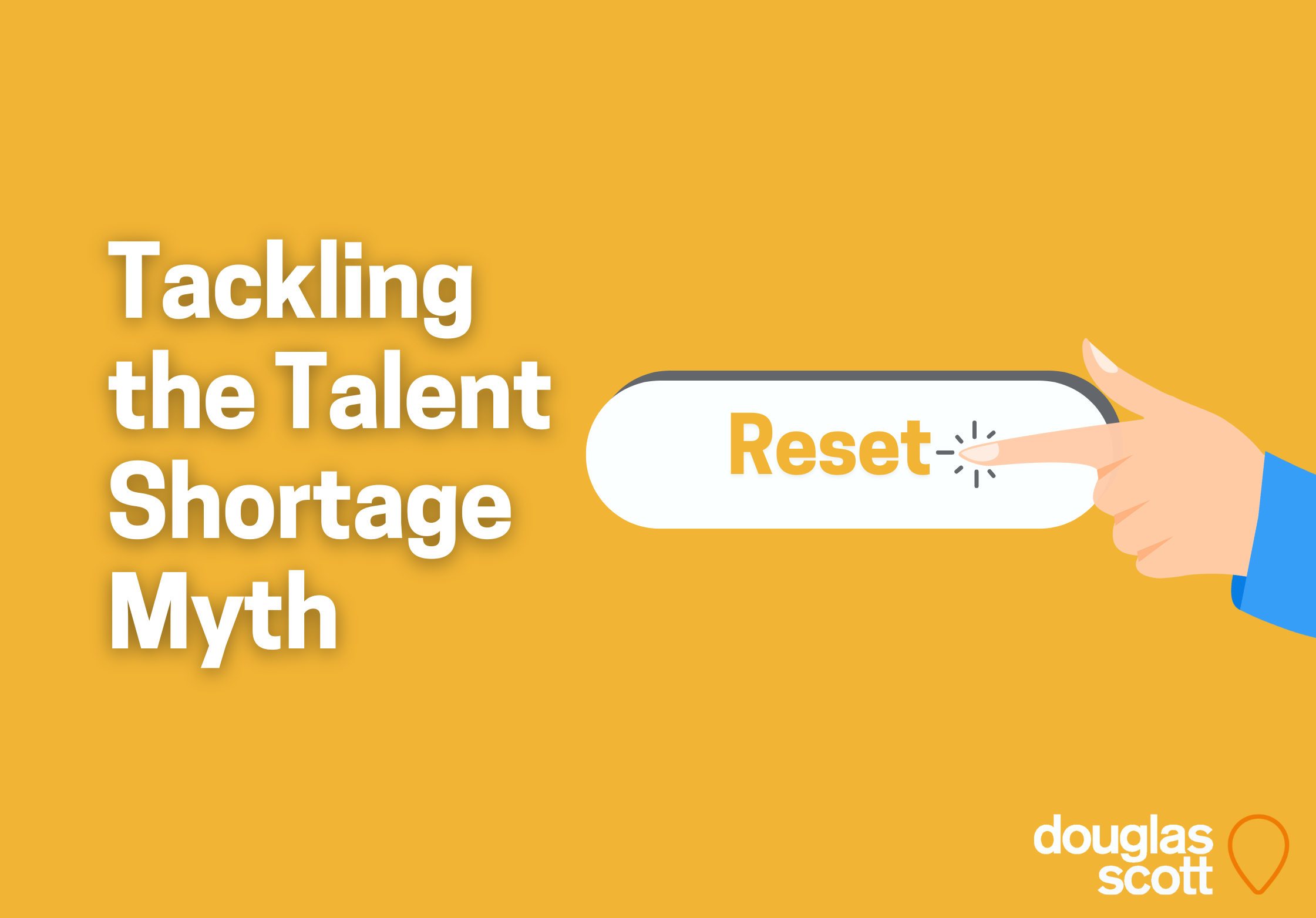Tackling the Talent Shortage Myth
Posted in Latest News on 25 Oct 2022

The last two years have been chaotic for HR leaders. Responsible for overseeing the biggest virtual working experiment in history, workforce wellbeing and engagement became one of the top concerns in 2020 as businesses were forced to navigate new workplace norms. Fast forward to 2021 and HR teams faced a new challenge: responding to evolving workforce needs and expectations as long-term remote and hybrid working models took shape. After which, organisations found themselves in the midst of what has been dubbed the ‘Great Resignation’ or the ‘Great Reset’ that saw people looking to move to pastures new or quit work entirely.
The ongoing talent shortage and connected trends have been widely publicised over the past 12 months. According to a recent report, more than half (56 per cent) of UK companies are suffering as a result of skills shortages, with £1.2 billion being spent annually on temporary staff to fill these gaps.
There is little doubt that UK organisations are confronting a much tighter labour market at a point when today’s fast-paced competitive landscape means skills acquisition and workforce re-skilling needs to be framed with agility in mind. But is there really a shortage of talented people in today’s job market and is everything you read about the Great Reset actually true?
The CIPD recently released a detailed analysis that busts some common misconceptions around what is actually going on and why.
Alongside explaining why there was a noticeable drop in job seeking during the pandemic that contributed to the Great Reset once recovery began, the CIPD explores how the pandemic experience led many people to re-evaluate what they want from a job in terms of life-work balance. With UK unemployment rates now at a record low, many are no longer willing to accept roles with companies whose cultural values don’t align with their own or where their professional ambitions and development needs aren’t recognised.
Meanwhile, LinkedIn has published hiring data that highlights how the Great Resignation in the UK is a much more nuanced phenomenon where certain sectors are clear winners in today’s booming jobs market. The report explores what’s motivating older and younger workers to shift jobs, where they are transitioning to, and why LinkedIn has renamed the Great Resignation as the ‘Great Reshuffle’. It also advises that organisations would be wise to embrace empowering employees with choices, flexibility and upskilling options if they don’t want their best and brightest talent to quit.
Recently, a You and Yours episode on Radio 4 featured the stories of so-called ‘boomerang employees’ who have returned to the workplace and the companies they once worked for. Speaking on the programme, Janine Chamberlin, UK Manager for LinkedIn, revealed how 5% of all new hires in 2021 were these so-called ‘boomerangers’.
An online poll prior to the programme revealed the top two reasons that prompted people to return to the fold included wanting a sense of belonging/being part of a culture and being notified about a specific job opportunity that enabled them to utilise their newly acquired skills and experiences.
For organisations the message is clear. Having conversations with employees and asking them where they want to go next before they look externally is of paramount importance. Plus, the complexities of the current workforce landscape, littered as it is with recent furloughs and terminations, means there is value to be had from building and maintaining an alumni network that enables organisations to keep their doors open and target potential boomerang employees.
Likewise, reframing the screening and hiring process can also help prevent making the talent shortage even greater than it needs to be. All too often, entry-level roles require three or more years of prior experience, making young jobseekers instantly ineligible. Attracting these first-time job seekers means ensuring that training and mentoring are part and parcel of the deal and that their lack of experience won’t be a barrier to applying.
Similarly, many junior management or next step roles often specify a raft of specific qualifications and requirements which again limits who can potentially apply. Yet what is most important to perform the role will be a candidate’s self-motivation, ambition and proven ability to communicate, collaborate as part of a team and deliver results.
By eliminating unnecessary requirements from job specifications and rethinking how they assess talent, organisations will be able to expand their talent pool search to include a much broader number and range of potential candidates who, regardless of their background, could be upskilled with specific know-how once in the role.
While the UK is undoubtedly facing new challenges within recruitment, untapped talent exists all over the world. It’s simply a case of finding it and onboarding it in the most optimised, compliant and effective way possible.
Latest insight
-
What is the top priority for law firm leaders?
20 Jan 2025 -
How to make your 2025 Legal dreams come true!
13 Jan 2025 -
What poor mental health is costing firms...
13 Nov 2024 -
Beyond the surface: How law firms are quietly advancing social mobility
05 Nov 2024 -
Which training providers are doing the best out of the SQE?
29 Oct 2024